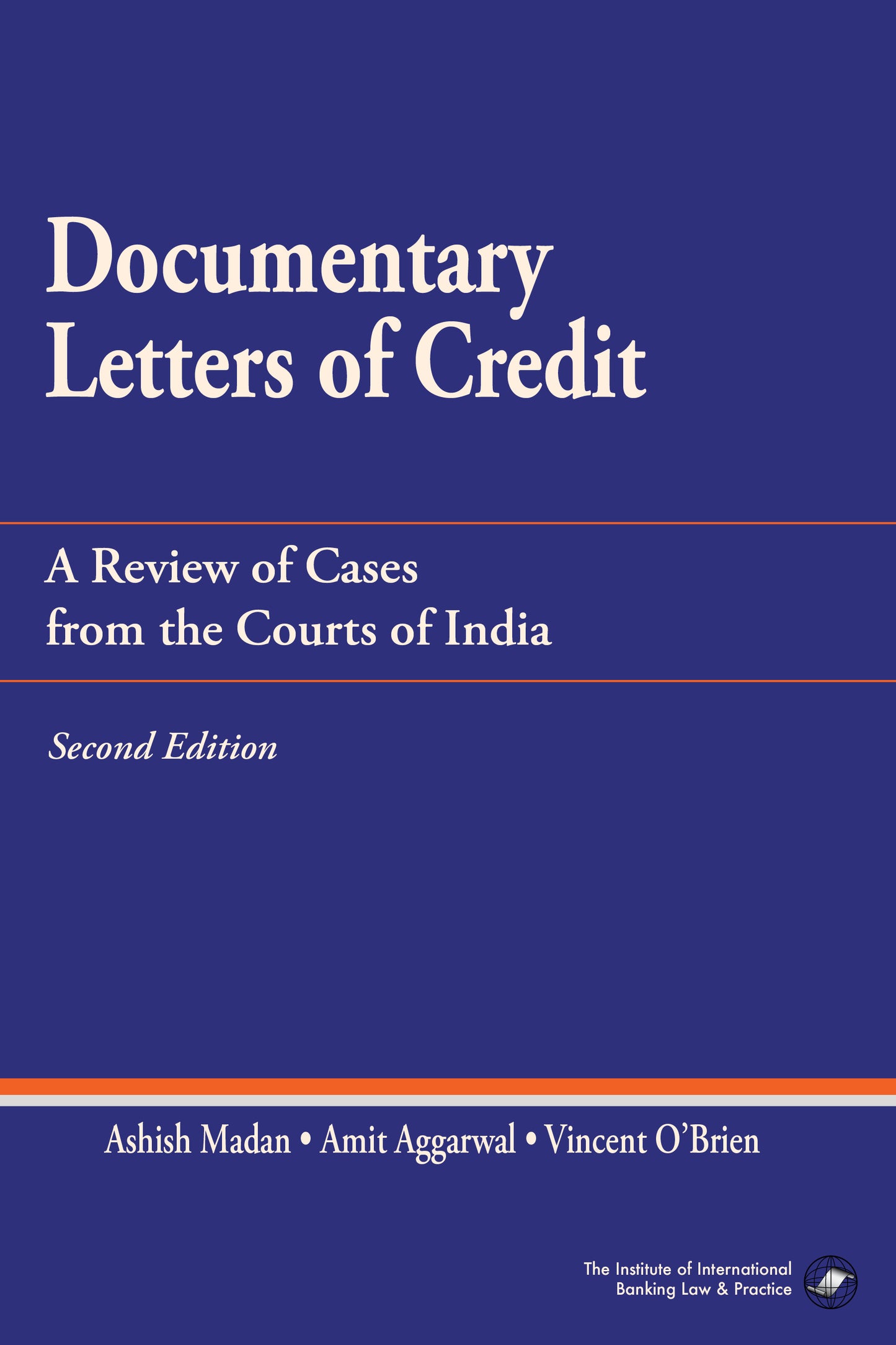IIBLP
Documentary Letters of Credit: Review of Cases from the Courts of India (2nd Edition)
Couldn't load pickup availability

Ashish Madan: An expert in trade finance, with extensive experience in handling letters of credit and structured trade finance.
In this second edition of the “DOCUMENTARY LETTERS OF CREDIT: A Review of Cases from the Courts of India”, two common threads repeatedly appear which relate to:
• The Independence Principle of Documentary Letters of Credit
• The Fraud Exception
A further topic of interest that appears in some referenced cases relates to the provision of finance by a nominated bank to a beneficiary under usance or time documentary letters of credit after documents have been presented.
Depending on how a letter of credit is made available with a nominated bank this provision of finance to a beneficiary is often referred in market practice with words such as ‘discounting’, ‘financing’, ‘advancing’ ‘prepayment’, ‘purchase’ or ‘negotiation’ among others.
To set the scene for the case reviews these repeating threads are briefly explored hereunder.
The Independence Principle
To safeguard and facilitate the smooth operation of the letter of credit as a payment mechanism which also facilitates trade financing decisions, banking practice has established the principle of independence in relation
to letter of credit undertakings.
The principle of independence, or otherwise referred to as the ‘autonomy
principle’, is the cornerstone of the law and practice relating to the
letters of credit. This means, that the credit is independent of and separate
from the underlying contract inter se between the seller and the buyer,
and also from the agreement between the applicant and the issuing bank....
Read the full introduction here

